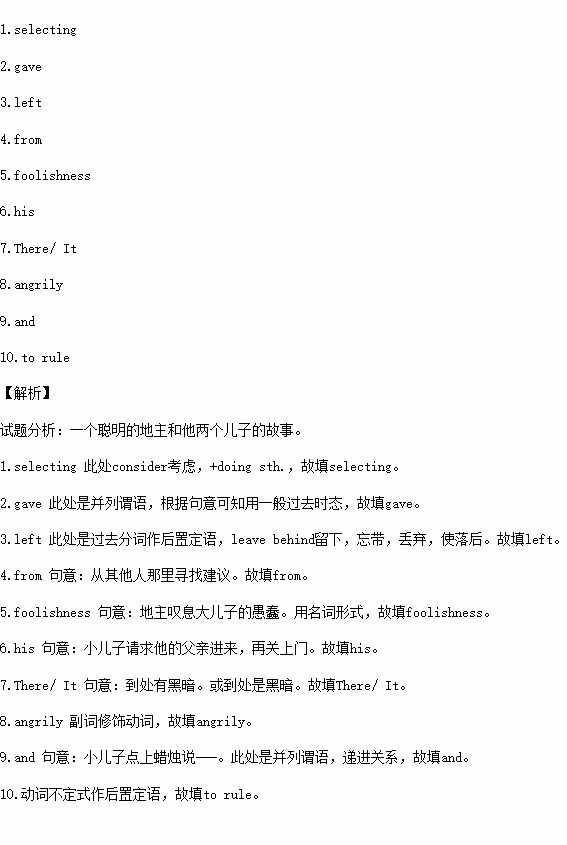题目内容
阅读下面材料,在空白处填入适当的内容(1个单词)或括号内单词的正确形式。
Once there was a wise landowner who had two sons. After a few years, the landowner fell ill badly. So he considered 1.__________ ( select) one of them to rule the family according to their abilities. He called both of them and 2.__________ (give) each one a room. He said,“You must fill your mom completely with anything you wish. It can be anything! But there should not be any space 3.___________ ( leave) behind and you should not seek advice 4._________ others! "
The next day, the landowner visited the elder son's room. The room was completely filled with hay (干草). The landowner sighed on the5.___________ (foolish) of the elder son. Then he went to the room given to the younger son. But it was kept closed. The landowner knocked at the door. The younger son asked 6.__________ father to get in and closed the door again. 7.__________was darkness everywhere and the landowner shouted at his son 8._________ ( angry). But the younger son lighted a candle 9.___________ said, “I have filled this room with light! Now the landowner felt very happy and hugged his son proudly. He understood that the younger would be the applicable person 10._________ (rule) the family.
 阅读快车系列答案
阅读快车系列答案
